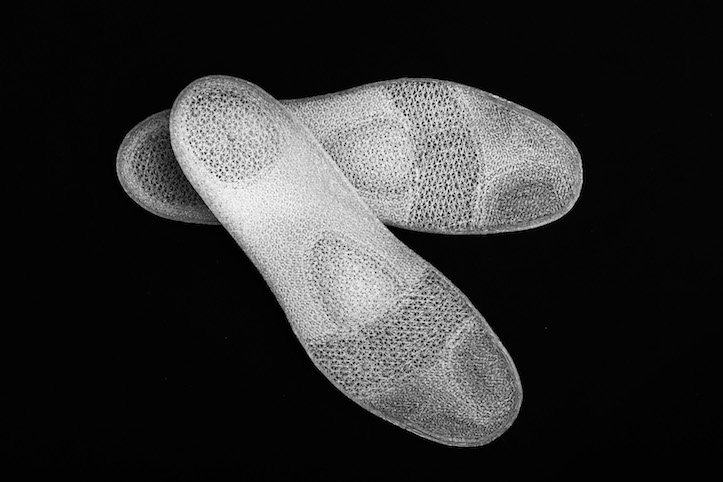Shoe insoles made of Elastollan® (TPU) offer a high degree of individualization freedom
3D printing manufacturing enables smooth transitions between soft and hard structures
Elastollan®, BASF's thermoplastic polyurethane (TPU), is used as a filament by the duro3D paver in the production of individual shoe insoles using 3D printing processes. In sole applications, the material is characterized above all by its excellent vibration damping and resilience. Under heavy use, e.g. when used in sports shoes, it is also the abrasion resistance that makes the sole durable and comfortable to wear. Even with fluctuating temperatures, the insert retains its desired properties.
Elastollan® cushions
An excellent matching of the thermoplastic material to the challenges of discontinuous extrusion in 3D printing (FDM) makes it possible to map macrostructures of different densities in a sole, which in turn are - also selectively - tailored to very individual needs. Thus, soft sole areas with lower filling density can relieve and flow smoothly into another area, which rather firmly supports and stabilizes the foot with higher filling density.
Usually, the Elastollan® types of 85 Shore A (soft) and 95 Shore A (hard) are used in orthopaedic insoles to support the entire skeleton, but also in insoles for sports shoes, where a special load cushioning or support is desirable due to increased footwork. The open grid structure of the material also makes the sole breathable.
Through the so-called smoothing, i.e. by the production of flowing, linear transitions between two hardness areas of the sole, unpleasant hard edges are completely avoided, the width of the transition area is customizable. This fully demonstrates the full application flexibility of Elastollan®.
Walking on TPU makes a difference
The production of shoe soles made of TPU filaments enables complete and comprehensive recyclability. In contrast to commercially available milled soles made of foam materials, the material can simply be mechanically shredded, re-extruded and granulated after the use cycle. Used deposits are combined with the production surplus according to type and completely recycled by a recycler.
By making the insoles to measure, material is massively saved. Only the final required material is used. As a result, there is almost no surplus in production.
A production of the soles with thermoplastic polyurethane based on renewable raw materials is also conceivable in principle.
www.basf.com

 Deutsch (Germany)
Deutsch (Germany)  Polski (PL)
Polski (PL) 









